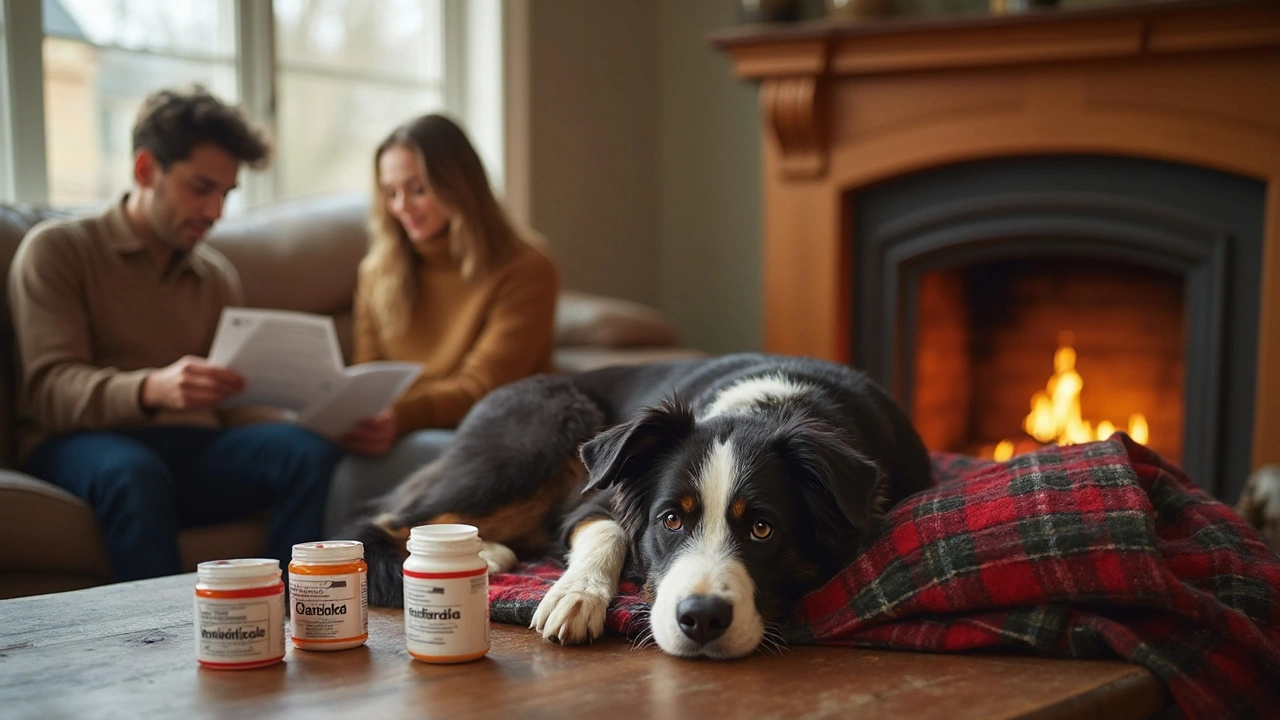Vet Giardia Treatment: What Every Pet Owner Should Know
Giardia is a common intestinal parasite in dogs and cats that causes diarrhea, soft stools, and sometimes vomiting or weight loss. It’s messy, contagious, and frustrating — but most pets recover well with the right vet care and a little home effort. Here’s a clear, practical rundown of what to expect from diagnosis, treatment, and cleaning your home to stop reinfection.
How vets diagnose Giardia
Don’t guess. Vets use tests because a single poop check can miss Giardia cysts. The typical tools are a fecal flotation (microscope) and a fecal antigen test or PCR, which are more sensitive. If your pet has intermittent diarrhea or you have a puppy/kitten, your vet may run two tests a few days apart. Bring a fresh stool sample in a sealed container and mention any recent medications or diet changes — that helps the vet interpret results.
Common treatments and home care
Two drugs vets often use are metronidazole and fenbendazole. Metronidazole is an antibiotic that can reduce cysts and inflammation — typical veterinary doses are in a range and depend on weight, so never self-medicate. Fenbendazole is a dewormer given for several days and can be used alone or with metronidazole. Some vets prefer one over the other, or both together when symptoms persist. Follow the vet’s instructions and finish the full course even if your pet seems better.
Supportive care matters: keep your pet hydrated, offer bland food when recommended, and avoid stress. Probiotics may help restore gut balance; ask your vet which product and dose are right for your pet. Also, retesting is common — many vets check stool again 1 to 2 weeks after treatment to confirm the infection is cleared.
Giardia can be stubborn. If diarrhea returns, your vet might extend treatment or try a different medication. In some cases, parasites become harder to clear or other illnesses are involved, so additional diagnostics could be needed.
Cleaning the environment is as important as the pills. Wash bowls, leashes, and bedding in hot water and dry on high heat. Clean floors and crates regularly; steam cleaning is effective. Avoid allowing pets to drink from puddles or communal water bowls during and shortly after treatment — that’s a common source of reinfection.
Is Giardia a risk to people? Some strains can infect humans, especially children and people with weak immune systems. Practice good hygiene: wash hands after handling pets, clean up stool promptly, and keep living areas clean until the vet confirms the pet is clear.
If your pet is very young, very old, pregnant, or showing severe signs (persistent vomiting, bloody diarrhea, lethargy, or dehydration), see the vet right away. Timely care prevents complications and helps stop the parasite from spreading around your home.
Bottom line: trust your vet for testing and dosing, finish the full treatment, clean the environment, and follow up with retesting. That combo gives your pet the best shot at a clean bill of health and keeps your family safe too.

